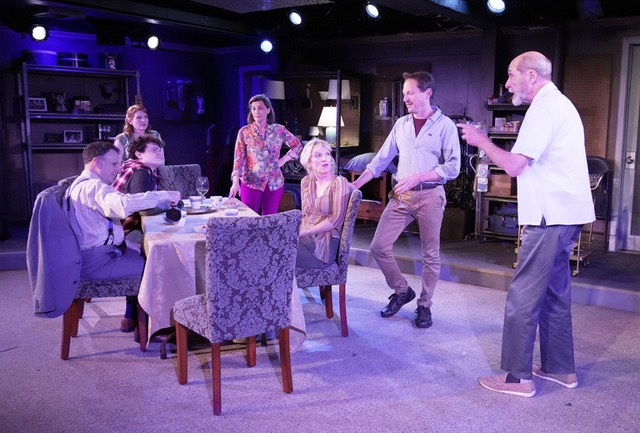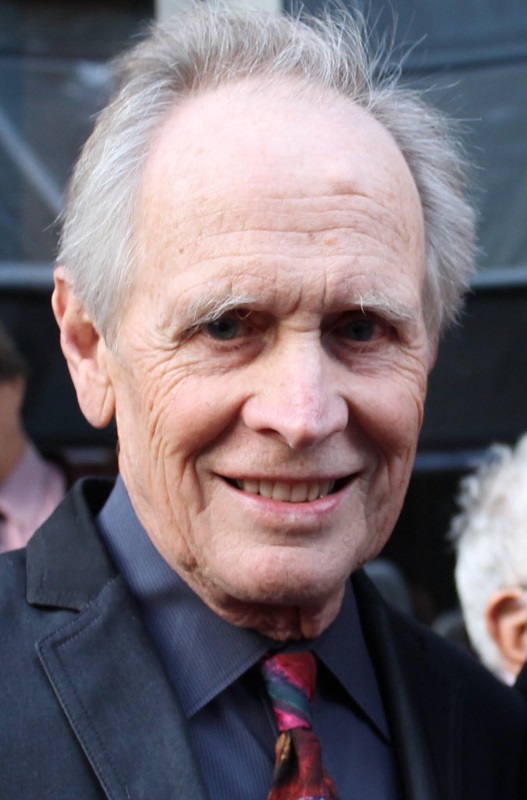
With theatrical styles ranging from Naturalism, Expressionism, Theatre of the Absurd, to Modernism, Postmodernism, and Classical, in trying to identify exactly what director Jason Alexander had in mind, you’re guess is as good as mine. If I could use the illustrative term “mixed metaphor” or in this case, mixed theatrical styles that directly contradict each other, that would be closer to what was presented opening night of IF I FORGET at the multi-award winning Fountain Theatre. Notwithstanding the inconsistent and sometimes confusing direction, this outstanding cast delivered riveting, nuanced performances servicing Steven Levenson’s well-written script. He won a Tony Award for writing the “Dear Evan Hansen’s” book. Based on personal conversations with his family and friends, the crisp dialogue, packed with opposing ideas, explores the continuing impact the Holocaust has on Jews as well as family challenges. The action is set at the beginning of the 21st century. George Bush is president and the Oslo Peace Accords between Israel and Palestine has collapsed. The setting is in a white, upper-middle class neighborhood in Washington, D.C. where the family gathers to deal with the recent death of the mother which transitions to other family matters and hidden resentments. Levenson’s script sharply details the struggles of this family with pathos and humor, avoiding the pitfalls of turning it into “kitchen sink drama,” which generally revolves around the struggles of working class families.
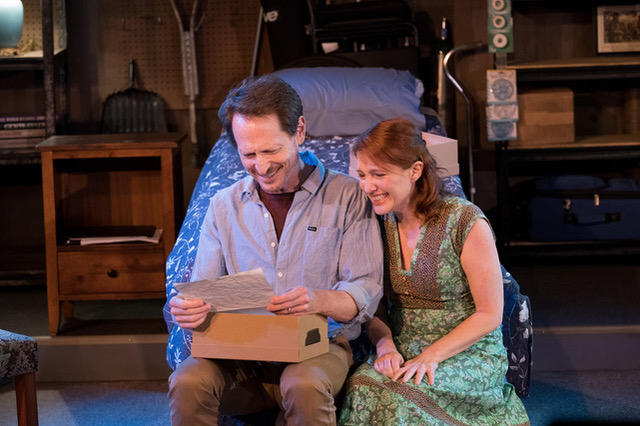
On rise, the entire cast walks on stage and holds in a tableau. Through an opaque door window, we see a dancer doing shadowy gyrations. (More on that later.) After the stage is drenched in red lighting, the actors bring in the sparse set pieces and the play begins. A device, usually seen in experimental theatre, is having the actors on stage all the time with those members not in a specific scene seated either on stage left or stage right, becoming part of the audience. No one uses that theatrical device more effectively, when jermaine to the script, as well as Tim Robins in his Actors Gang Theatre, known for experimental, avantgarde productions.
The action finally begins with Michael Fischer, played by Leo Marks, who delivers a compelling, fascinating performance. He is talking to his wife Ellen, well played by Síle Bermingham, and they are discussing their daughter Abby, who is suffering from mental issues including an eating disorder, which is just the tip of the ice berg. She is currently in Israel and in view of the unstable Middle East, dad is overwrought with her being there. A professor teaching Jewish History, he has written a book – “Forgetting the Holocaust” – scolding Jews over their obsession with that nightmarish event – a book that will eventually not only cost him tenure, but also makes him un-hirable by any college or university. He defends the book on the grounds that people misunderstood his point of view. We next meet his sister Holly, played by Valerie Perri, who, like the rest of the cast, mines the multi-layers of her character. She is married to Howard, well played by Jerry Weil, a seemingly successful attorney with a few secrets and a new toy called a cell phone. A confused young Joey, nicely played by Jacob Zelonky, provides comic relief as well as a questionable mental capacity. Samantha Klein plays Sharon Fischer, the sibling who spent the most time taking care of their late mother. They have gathered to discuss the disposition of mom’s belongings and looking at old photos, reminisce about their childhoods. Completing the family unit is their dad Lou Fischer, wonderfully played by Matt Gottleib. He delivers a subtle, deeply felt characterization, especially his moving description of his experience as a World War II soldier encountering the prisoners at Dachau.
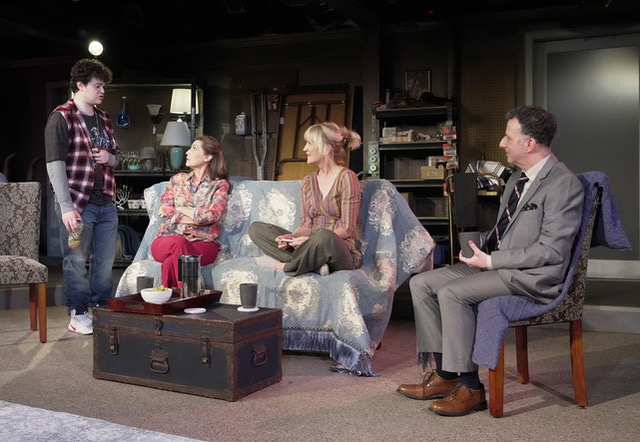
Circling back to the mysterious dancer we saw at the top of Act 1, using ghost-like figures in plays is not a new theatrical device. Sometimes it’s comical as in Noel Coward’s “Blithe Spirit” or haunting as in Shakespeare’s “Hamlet” where the protagonist encounters the ghost of his father. Why did this device work in those two examples? It worked because the ghost appearances were an integral part of the writing and not layered on for “effect.” The weakest part of this production are the devices inorganically imposed on the script by Alexander. Furthermore, the jarring ghostly dance sequences performed by Caribay Franke as the troubled Abby are strikingly similar to Australian singer/dancer Sia – right down to the short platinum blonde hair.
In Act II, years have passed and dad has had several strokes. There are discussions on how they can pay for needed around-the-clock help, at a cost of $1,000 weekly. The biggest asset they have is a clothing store which has been in the family since 1947 and is currently leased out at a fraction of the market rate. They discuss selling the building to pay for dad’s care which, like in Strindberg’s “Cherry Orchard,” is a vital part of their family history. Michael makes the strongest argument for its sale.
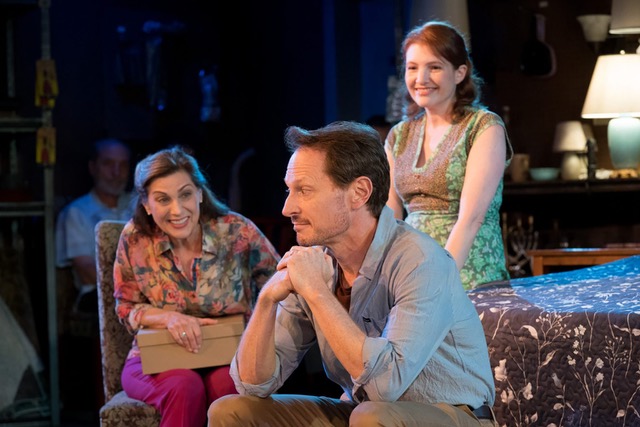
Levenson’s brilliantly written script combines a family drama with social and political commentary as performed by this talented ensemble all of whom deliver director-proof nuanced performances. This evening of theatre is worth the price of admission to experience ensemble acting at its highest level.
IF I FORGET
The Fountain Theatre
5060 Fountain Avenue
Los Angeles, CA 90029
(Fountain at Normandie)
Written by Steven Levenson
(“Dear Evan Hansen”)
Directed by: Jason Alexander
Scenic Design: Sarah Krainin
Lighting Design: Donny Jackson
Sound Design: Cricket S. Myers
Run:
Mondays: 8:00 p.m.
Fridays & Saturdays: 8:00 p.m.
Sundays: 2:00 p.m.
Closing: Sunday, Sept. 4, 2022
Running Time: 2 ½ Hours
(one intermission)
Tickets: $25 – $45
Seniors: $35
(323) 663-1525 or
www.FountainTheatre.com
Secure, on-site parking: $5.00
Street Parking is Available

